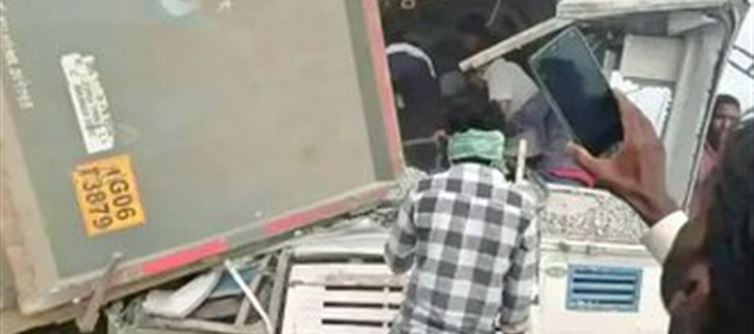
Everyone’s mourning the 17 killed near Mirzaguda village — but beneath the tears lies a brutal pattern india refuses to confront: our economy runs faster than our infrastructure can breathe.
Every minute, somewhere on an indian highway, a driver like the one in ranga reddy is forced to make a decision — rest or revenue. Guess which one wins?
Transport companies set impossible delivery targets. drivers are paid per trip, not per hour. The result? A convoy of sleepless zombies racing 18-hour shifts on decaying roads. Overloading is not an exception; it’s the business model. Every extra tonne means extra pay — and extra risk.
What happened in telangana wasn’t fate — it was math.
Speed + Weight + Fatigue + Narrow Highways = 17 deaths.
Yet, we never discuss the chain that begins in boardrooms, not steering wheels. The textile order in Tiruppur, the electronic parts for Hyderabad, the food cargo for vijayawada — all depend on trucks like this one. Every time we demand faster deliveries and cheaper freight, we unknowingly tighten the noose around these drivers’ necks.
Even worse, India’s highway safety laws are decades old, often enforced only after tragedy. Every new death sparks outrage — until the next one.
The truth? Highways are India’s unsung sweatshops.
And the ranga reddy crash was not an accident; it was a performance review gone fatal.
If this sounds cynical, it’s because reality is.
Until india values human life over delivery time, our highways will keep collecting dues — in blood.
#RangaReddyHighway #IndiaOnTheEdge #TelanganaTransport #LogisticsNightmare #RoadSafetyReform #TruckersOfIndia #IndiaEconVsEthics #SilentSystemCrash
Telangana accident analysis, india truck crisis, overworked drivers india, logistics economy risk, highway safety reform, ranga reddy analysis
“When Profit Drives the Wheel, Someone Always Dies.”




 click and follow Indiaherald WhatsApp channel
click and follow Indiaherald WhatsApp channel